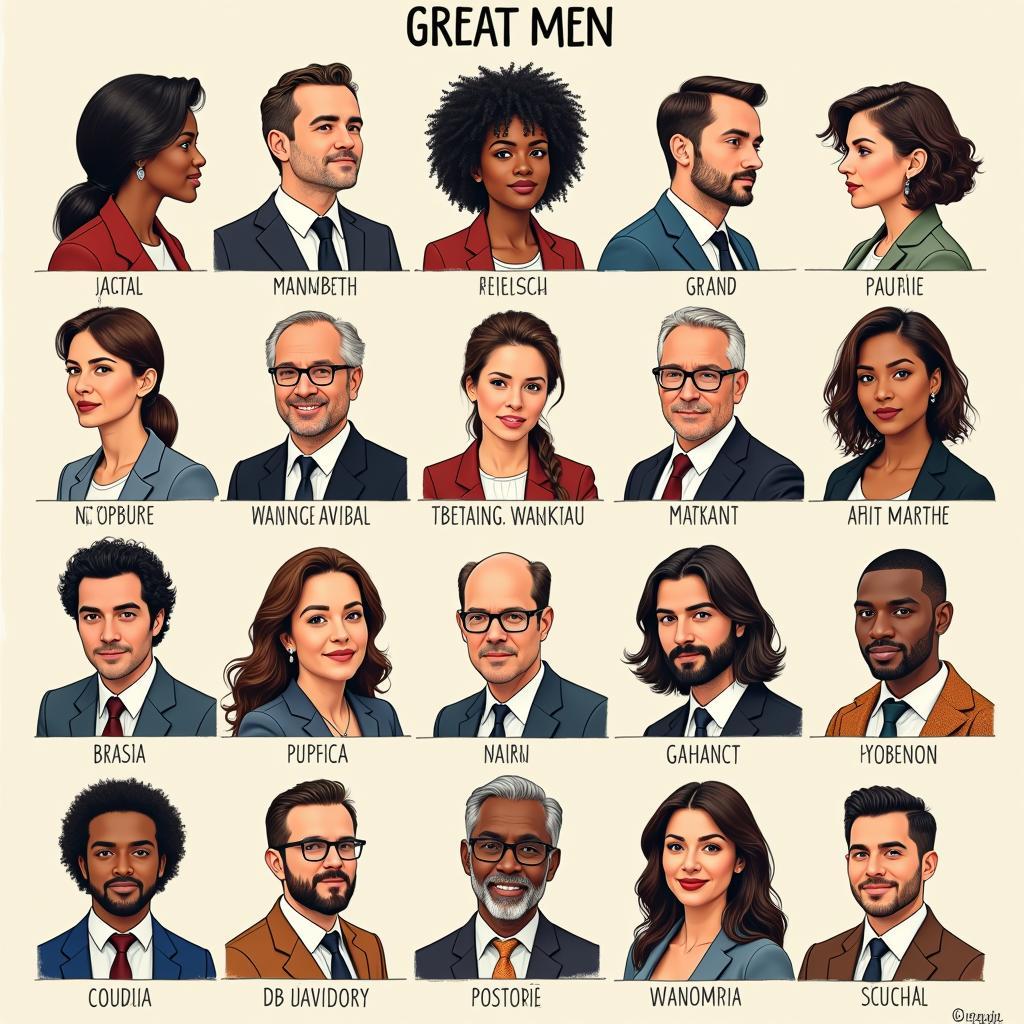The term “Great Men Society” might conjure images of historical figures who shaped civilizations. However, this concept, often rooted in a patriarchal lens, fails to acknowledge the countless individuals from diverse backgrounds who have contributed to our collective progress. This article aims to unpack this notion, exploring the limitations of focusing solely on “great men” and highlighting the importance of recognizing and celebrating the contributions of all genders in creating a more equitable and just world.
Beyond the “Great Man” Narrative
History has often been told through the lens of “great men” – individuals deemed exceptional due to their achievements in politics, war, science, or other fields. While their accomplishments should not be erased, it’s crucial to recognize the inherent biases in this narrative.
Firstly, the criteria for “greatness” are often subjective and reflect the dominant power structures of the time. Qualities like ambition, leadership, and even aggression, typically associated with masculinity, are often prioritized, while traditionally feminine traits like empathy, collaboration, and nurturing are often undervalued or overlooked.
Secondly, focusing solely on individual “great men” obscures the contributions of countless others – women, people of color, and individuals from marginalized communities – whose voices have been systematically silenced or erased throughout history.
 Diverse group of unsung heroes throughout history
Diverse group of unsung heroes throughout history
Embracing Inclusivity: A More Complete Picture of Progress
Shifting away from the “great men society” paradigm necessitates a more inclusive approach to understanding history and progress. This involves:
- Recognizing the Interconnectedness of Humanity: No individual achieves “greatness” in isolation. Every innovation, every social movement, every step forward is the result of collaboration, often involving the contributions of numerous individuals, many of whom may never receive individual recognition.
- Amplifying Marginalized Voices: We must actively seek out and highlight the stories and accomplishments of individuals from historically marginalized groups. This involves challenging traditional historical narratives, uncovering hidden figures, and amplifying the voices of those who have been silenced for far too long.
- Redefining “Greatness”: It’s time to move beyond narrow definitions of success and “greatness.” We need to recognize and value contributions in all spheres of life, from the arts and sciences to community organizing and caregiving. True “greatness” should encompass compassion, empathy, and a commitment to social justice.
Building a More Equitable Future
Moving beyond the limitations of the “great men society” is not about diminishing individual achievements. Instead, it’s about creating a more complete and accurate understanding of history and progress. By recognizing the contributions of all people, regardless of gender, race, or background, we can build a future where “greatness” is defined not by individual accomplishment alone, but by our collective efforts towards a more just and equitable world.
FAQs
1. Why is the concept of a “great men society” problematic?
This concept perpetuates a narrow and often biased view of history, neglecting the contributions of women, people of color, and other marginalized groups.
2. How can we create a more inclusive understanding of history?
We can do this by actively seeking out and highlighting the stories and accomplishments of individuals from historically marginalized groups, and by challenging traditional historical narratives that center on the achievements of a select few.
3. What are some examples of contributions from women and other marginalized groups that are often overlooked?
There are countless examples! From the scientific discoveries of women like Rosalind Franklin and Katherine Johnson to the social justice activism of figures like Martin Luther King Jr., and Malala Yousafzai.
Need Help?
For further information and support, please do not hesitate to contact us.
Phone: 02043854663
Email: [email protected]
Address: Khu 34, Bac Giang, 260000, Vietnam
Our dedicated team is available 24/7 to assist you.